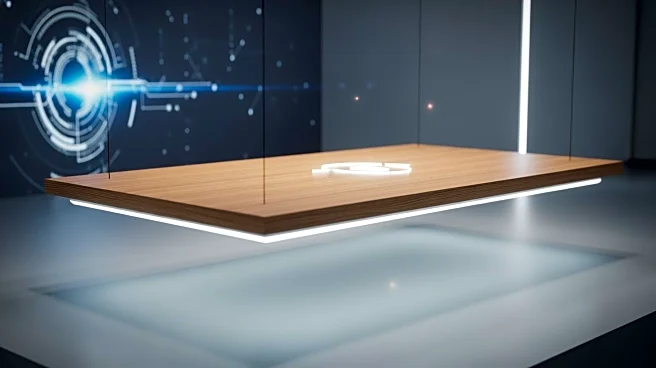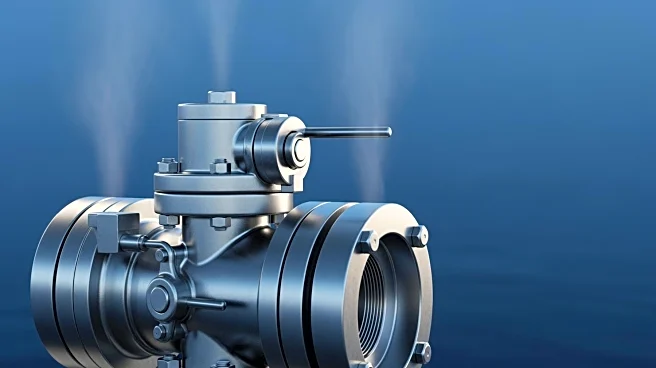What's Happening?
Strong by Form, a Chilean startup, is presenting its innovative ultralight engineered wood product at TechCrunch Disrupt 2025 in San Francisco. The company has developed a new type of engineered wood that
can replace concrete and steel in structural floors, offering a lighter and less carbon-intensive alternative. This product is designed to span longer distances than traditional engineered wood, making it a viable replacement for steel or concrete. The startup's approach involves shaping wood in a novel way, creating a structural floor piece that is lighter than traditional materials. The product is designed to be familiar to contractors, resembling cross-laminated timber (CLT) slabs, but with an internal structure filled with cavities to optimize load-bearing capabilities.
Why It's Important?
The introduction of Strong by Form's engineered wood product could significantly impact the construction industry by reducing carbon emissions associated with building materials. As buildings contribute to 11% of global carbon emissions, this innovation offers a sustainable alternative that could help mitigate environmental impact. The product's lighter weight also allows for overall structural optimization, potentially reducing the need for steel and concrete in building frames. This could lead to cost savings and make the product competitive with traditional materials. The startup's focus on hybrid buildings and its ability to achieve price parity with concrete could drive wider adoption of sustainable building practices.
What's Next?
Strong by Form plans to raise a Series A funding round of $10 million to build a pilot plant for commercial production of its engineered wood product. The company is also testing its 10-meter panels to ensure they meet fire and load ratings required by structural engineers. Additionally, Strong by Form is exploring applications for its technology in the transportation sector, working with train manufacturers to use its panels for interior finishes. These efforts aim to expand the use of their product across different industries, further promoting sustainable building practices.










